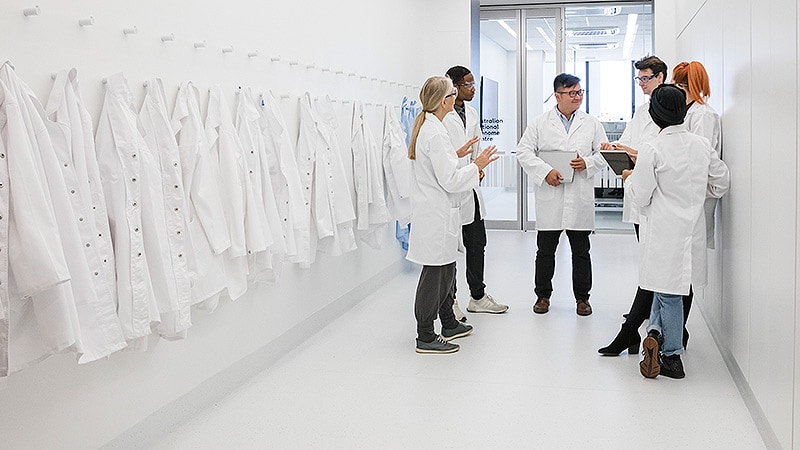The COVID-19 pandemic has dramatically altered medical students’ experience in 2020, and many believe it will affect how they practice medicine long after the pandemic subsides, according to the more than 2600 US medical students who responded to the the Medscape Medical Student & Life Education Report 2020 .
As it has for physicians, COVID-19 has weighed heavily on students, with about 1 in 10 reporting that they have personally known a resident, faculty member or medical professional who died from the illness.
 |
Only about half of students (45%) said they are satisfied with how their institutions are handling the pandemic.
Despite pandemic-related hardships, slightly more than half of the students said the pandemic has only reinforced their decisions to become physicians; 38% said it had no effect and just 8% said it weakened their choice to pursue medicine as a career.
Graduation Concerns
As for graduating on time, 43% of students are at least moderately concerned that COVID-19 interruptions will delay their graduation, women more so than men (47% vs 36%).
The vast majority (87%) of students said that COVID-19 had at least some negative effect on their experience taking United States Medical Licensing Examination (USMLE) tests.
Despite COVID-19 interruptions, more than half (58%) of medical students said they felt prepared or very prepared for their USMLE test, which is comparable to the 2018 survey.
About 2 in 5 students think COVID-19 interruptions and changes to their education will have at least a moderately negative effect on their ability to practice medicine as they launch their careers, with more women than men feeling this way (46% vs 36%).
About one third of students said COVID-19 has had at least some effect on their choice of specialty while two thirds said it’s had no influence.
Not much has changed in terms of the most popular specialities since Medscape’s 2018 report on medical student life and education. The top five choices remain family medicine (12%), internal medicine (11%), emergency medicine (11%), pediatrics (10%), and psychiatry (7%).
This year, students overwhelmingly said that personal interest in the field was the biggest factor in their choice. A slightly greater share of women (76% vs 68% of men) cited this reason, while men more often cited lifestyle (20% vs 15%) — similar to the 2018 survey.
Future earnings remain at least moderately important in choosing a speciality for the vast majority of students (84%) with more men than women feeling this way.
For both women and men, the desire to help those in need is the top factor influencing their decision to go to medical school (87% and 85%), followed by feeling a call toward medicine (68% and 63%), interest in science (67% and 78%), and prestige of a medical career (27% and 42%).
Overall, the prestige of a career in medicine has become somewhat less of a factor since 2016, when 37% of students cited it, compared with 33% in 2020.
What are the biggest challenges in medical school? The ability to master the clinical information ranked number one for both men and women. Work-life balance was the next most common concern for men, whereas passing educational requirements and mandatory tests was next for women.
Debt also weighs heavy on medical students. Half of students surveyed are expecting to have more than $200,000 of debt when they finish their education. That’s up from 45% 2 years ago.
Burned Out Already
Burnout among physicians is nothing new and medical students are not immune to it. In line with 2018, about three quarters of survey respondents said they have felt burned out at least sometimes.
These feelings were more common in women than men (81% vs 68%) and among third- and fourth-year students (80% vs 77%, respectively) compared with first-year students (68%).
“If the burnout begins as early as medical school and then you still have 4 more years of residency where the burnout is supposed to be even higher, that is not a good start,” commented Emily Kahoud, a third-year medical student at Rutgers University, in the report. “We don’t want students graduating medical school already burned out. That is something everyone should be concerned about.”
Most medical students have neither experienced nor witnessed unwanted verbal, physical, or sexual advances from patients, other students or faculty, similar to what was reported in 2018.
However, half of women reported experiencing some kind of bias from faculty, students, or patients during medical school. Gender bias was reported by 40% of women (vs 9% of men) and race/ethnicity bias by 22% of women (vs 15% of men).
Nearly half of students (46%) said they considered leaving medical school at some point, including 49% of women and 41% of men.
More than half (60%) said they have at least sometimes doubted their ability to be a competent practicing physician, women more so than men (64% vs 55%).
For more news, follow Medscape on Facebook, Twitter, Instagram, and YouTube.
